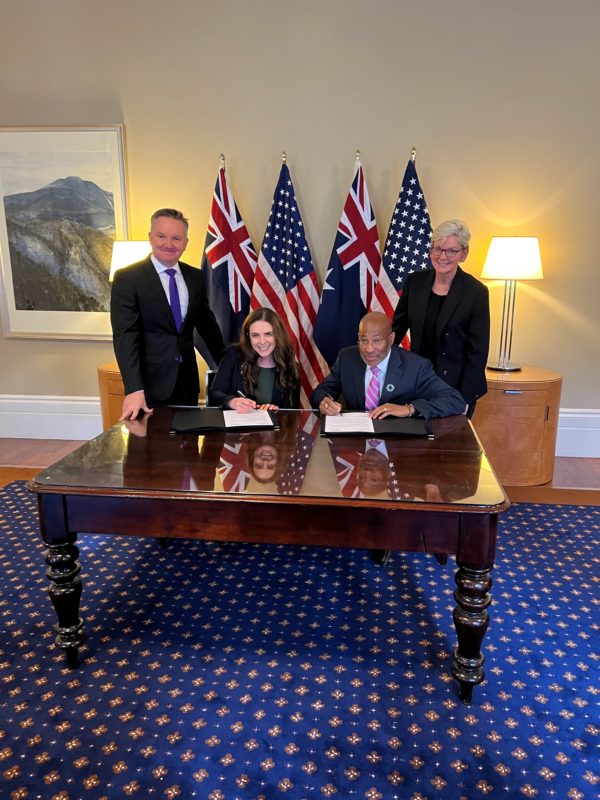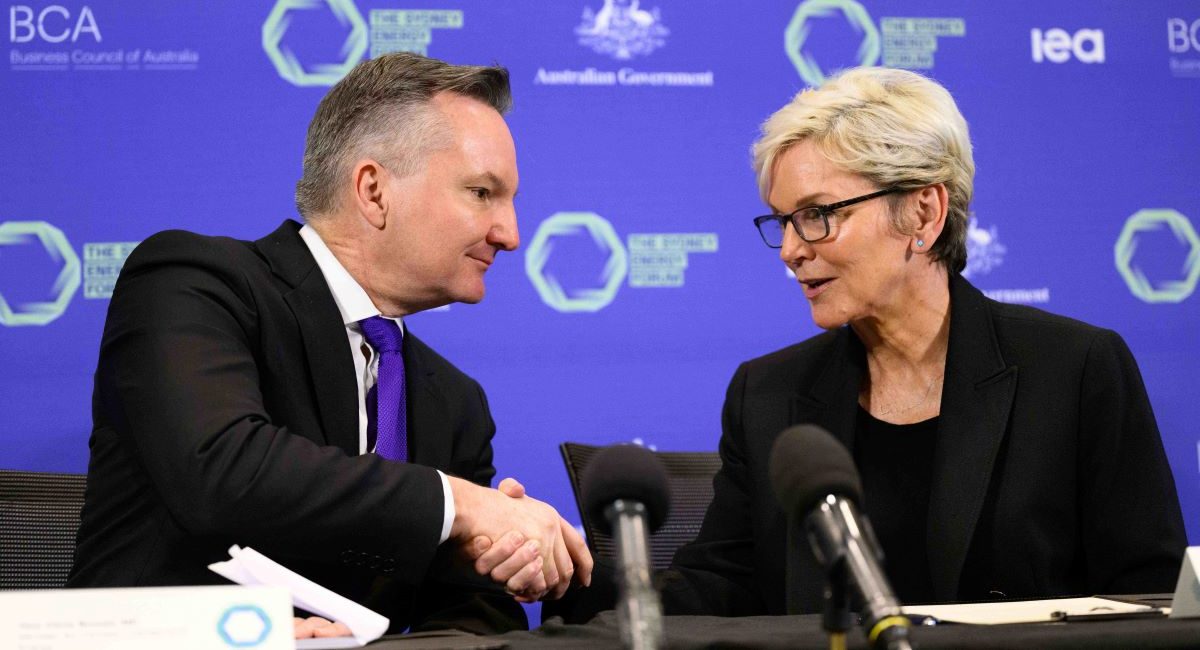Australia has signed a series of new clean energy partnership agreements, including the ‘Net Zero Technology Acceleration Partnership’ with the US, the ‘Minerals Security Partnership’ which includes political allies from across the world, as well as an agreement between the chief science agencies of Australia and the US, the CSIRO and NREL respectively.
Speaking at the Sydney Energy Forum on Tuesday, US Secretary of Energy Jennifer Granholm focused on the importance of secure supply chains to the clean energy transition, especially in light of the current global energy crisis spurred by Europe’s over-reliance on Russia and the invasion of Ukraine.
“We’ve seen what happens when we rely too much on one entity for our source of fuel, and we don’t want that to happen – so to diversify those energy sources and to link up with partners is part of our energy security,” Granholm said.
With few hard details in the agreements, it seems as though the moves at this stage are more of a formal recognition of a joint goal, especially in response to recent geopolitical events. The US and Australia did, however, point to of a number of technological focal points.
‘Greatest peace plan’
Granholm described the transition to renewables as “the greatest peace plan of all” since countries cannot be “held hostage” over access to the sun or wind. “They have not ever been weaponised, nor will they be,” she said.
The Australia-U.S. Net-Zero Technology Acceleration Partnership reflects our nations’ joint commitment to grow our energy capacity and obtain the full advantages of affordable, diverse, and secure clean energy. Great pleasure to work with you Minister @bowenchris 🇺🇸🤝🇦🇺 pic.twitter.com/OxIKXALWFd
— Secretary Jennifer Granholm (@SecGranholm) July 12, 2022
Australia currently imports around 80% of its solar panels from China – which also controls the vast amount of materials processing for other renewable technologies. While this has led to incredible depressions in the price of these technologies globally, the International Energy Agency’s executive director Fatih Birol noted the country’s near monopoly was “something that we all need to think about.”
Net Zero Technology Acceleration Partnership
Signed by Granholm and Australia’s Minister for Climate Change and Energy, Chris Bowen, the Australia – United States Net-Zero Technology Acceleration Partnership seeks to accelerate the development and deployment of zero emissions technology, as well as growing cooperation between the two countries in terms of critical minerals supply chains.
“With today’s partnership, our two countries will work together to unlock critical advances in long-duration storage, grid integration, clean hydrogen, direct air capture, and critical minerals and materials – providing an essential opportunity to export the innovations that will accelerate the global clean energy transition,” Granholm said.
Officials from the US and Australia agreed to meet within three months to make further progress relating to the agreement, presumably to set out more concrete goals.
Minerals Security Partnership
This global partnership is specifically aimed at ensuring the security of critical minerals supply chains. Australia has now joined the partnership which includes the US, Canada, Finland, France, Germany, Japan, the Republic of Korea, Sweden, the United Kingdom and the European Commission.

Image: CSIRO
CSIRO & NREL
At the forum, Australia’s Commonwealth Scientific, Research, and Industry Organisation (CSIRO) and the United States National Renewable Energy Laboratory (NREL) also signed a Memorandum of Understanding (MoU).
“Under the agreement, CSIRO and NREL will initially focus on four areas of strategic importance to Australia: hydrogen, global power system transformation, plastics, and an accelerator/incubator program for small and medium sized enterprises that has the potential to transform our global energy future,” NREL’s Chief Research Officer, Dr Peter Green, said at the signing yesterday.
The agreement was also signed by CSIRO Chief Executive Dr Larry Marshall. “Importantly, through CSIRO’s shared national labs, it paves the way for new opportunities for Australian science institutions to partner with US national labs and industry to lead on cutting-edge research that will lower the cost of net zero energy technologies at a global scale,” Dr Marshall said.
This content is protected by copyright and may not be reused. If you want to cooperate with us and would like to reuse some of our content, please contact: editors@pv-magazine.com.









3 comments
By submitting this form you agree to pv magazine using your data for the purposes of publishing your comment.
Your personal data will only be disclosed or otherwise transmitted to third parties for the purposes of spam filtering or if this is necessary for technical maintenance of the website. Any other transfer to third parties will not take place unless this is justified on the basis of applicable data protection regulations or if pv magazine is legally obliged to do so.
You may revoke this consent at any time with effect for the future, in which case your personal data will be deleted immediately. Otherwise, your data will be deleted if pv magazine has processed your request or the purpose of data storage is fulfilled.
Further information on data privacy can be found in our Data Protection Policy.